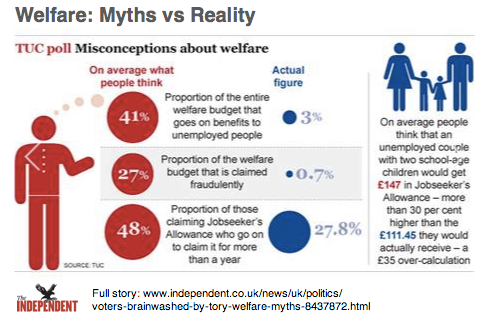Red Pepper magazine is hosting an event on Wednesday night in London which aims to go some way to clarify the various strands of worries and queries that people have about the state of left wing political movements. As well as the obvious matters to debate - the question of left unity (which I've already discussed myself, and will likely come back to at some point) and what impact the Occupy movement has had on the prospects of the left-wing - it also covers what I feel is a hugely important issue:
How do we avoid repeating the authoritarianism that blighted the socialist project in the last century?I feel this is a hugely important issue to address, as it may be the greatest stumbling block towards a more successful left-wing. Not only has the 'socialist project' as it is referred to failed - in a European context, at least - but, when it did collapse, the people, even those loyal to the USSR up until then, were disgusted at the rotten innards which spilled out. Now, communism and socialism - anti-capitalism in general - is synonymous with Stalinist gulags, with mass starvation, with the atrocities of the Khmer Rouge.
This is, of course, a willful misrepresentation of what left-wing politics actually stands for. In fact, there is an attempt by right-wing commentators, especially in America, to redraw the traditional political spectrum, whereby 'left' is shorthand for 'authoritarian', and 'right' is immediately parallel to 'freedom' and 'democracy'. Hence the placing of fascists and nazis at the left side, while the right is populated with conservatives, libertarians and neo-liberals.
Obama, who is, in social-domestic terms, liberal-left, and right wing in everything else, is frequently portrayed as a communist who wants to take away your freedom by increasing taxes slightly. Glenn Beck and his ilk are the ones who portray themselves as the defenders of freedom (the freedom to live in a country where you are shot with an unlicensed gun or die of a curable health problem because you can't afford health insurance).
Dan Hodges article for the New Statesman gives several examples from the British media, where this redrawing of the political spectrum has increased of late. Iain Dale, for example, gives it the old 'the clue is the phrase 'National Socialism'". There was also a flurry of articles defending Dr Rachel Frosh, a recently-elected police and crime commissioner after she tweeted the below picture:
Hodges makes an important point in his article -
Hitler wasn't a socialist, nor was he a conservative. He was a political mutation.Hitler was part of the burgeoning wave of fascism which was sweeping Europe after its creation by Mussolini in Italy. It disregarded the traditional opposition of capitalism vs socialism for a more populist, catch-all version which cherry-picked from everything. It had roots in left-wing politics, but it had roots in right-wing politics as well. Like all power-mad dictators, Hitler basically made it up as he went along.
Moreover, he had a skewed vision of what 'socialism' meant, and the relation to Marxism. See, for example, this interview from 1923, reprinted in the Guardian as part of the 'Great Interviews of the 20th Century' series:
"Why," I asked Hitler, "do you call yourself a National Socialist, since your party programme is the very antithesis of that commonly accredited to socialism?"
"Socialism," he retorted, putting down his cup of tea, pugnaciously, "is the science of dealing with the common weal. Communism is not Socialism. Marxism is not Socialism. The Marxians have stolen the term and confused its meaning. I shall take Socialism away from the Socialists.To redraw Hitler as a socialist, and therefore damn all socialists by association, is either a deliberate action in the absence of proper arguments - like, for example, an argument refuting that capitalism is in crisis - or the bizarre thoughts of a close-minded idiot. Either way, it remains a feasible thing to do because history shows the allegedly intrinsic connection between anti-capitalism and authoritarianism (this also leads to the mistaken conclusion that capitalism is intrinsically linked with democracy and freedom).
Socialism is an ancient Aryan, Germanic institution. Our German ancestors held certain lands in common. They cultivated the idea of the common weal. Marxism has no right to disguise itself as socialism. Socialism, unlike Marxism, does not repudiate private property. Unlike Marxism, it involves no negation of personality, and unlike Marxism, it is patriotic.We might have called ourselves the Liberal Party. We chose to call ourselves the National Socialists. We are not internationalists. Our socialism is national. We demand the fulfilment of the just claims of the productive classes by the state on the basis of race solidarity. To us state and race are one."
Admittedly, the left wing connection with authoritarianism is not the sole result of propaganda by right-wing newspaper columnists. The actions of the 'socialist' (state-capitalists, in reality) governments of the USSR, China, Cuba, and more are, of course, horrendous, and, I feel, a betrayal of what anti-capitalist politics can, and should, mean. I find this especially important to note as we move through the era of neo-liberalism, whereby capitalism combines a recklessly free market with a strong state which is designed to nurture the growth of this 'free' market, and stifle opposition to it. Socialism is now the definable democratic model.
But, concerning the historical examples of totalitarianism: what they can serve as are reminders of the incorrect way to apply to works of Marx, and others, to real life. There were aborted attempts at establishing capitalism throughout history, and the current mode remains riddled with flaws. History is there to be learnt from, and, importantly, to be cast off, as so not to cloud our judgement today.

